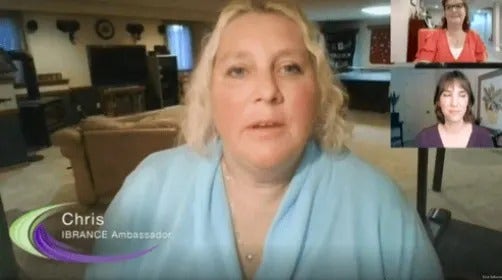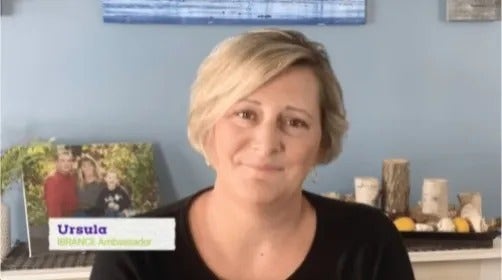Our Ambassadors are real IBRANCE® patients and caregivers offering support and encouragement to women with metastatic breast cancer (mBC)—as well as the people who care about them.
Ambassadors were compensated for their time.
Find Strength And Perspective
See what IBRANCE Ambassadors are sharing about what they’ve learned, how they’re coping, and ways they’re managing life after diagnosis.
Ambassadors were asked to share their personal stories about IBRANCE. All content was accurate at the time of publication and may have since changed. Ambassadors were compensated for their time.
IBRANCE Ambassador Podcasts
Priscilla
As a nurse, Priscilla has a unique perspective on how it feels to be a patient. Listen to Priscilla talk to her daughter about her experience while living with her medical issues.
Norma
Norma and Anne have been friends for more than 20 years. Listen in as they talk about their friendship and the importance of support. Their connection strengthens when Norma opens up about her feelings and her fears.
Connect With A Patient Or Caregiver
If you’re taking IBRANCE or caring for someone who is, the IBRANCE Ambassador Mentor Program can provide you with encouragement, support, and understanding as you navigate mBC. Here are a few things the program offers:
Someone To Talk To
Private one-on-one phone conversations with a mentor for patients and caregivers of patients prescribed IBRANCE.

A Friendly Voice
An IBRANCE mentor who may relate to what you’re going through, and who can provide support.

Useful Info
Help with topics like living and working with mBC, support services, and doctor relationships.
Mentors are not medical or mental health professionals and cannot provide any medical advice. Please contact your healthcare team for medical information.
Meet Our IBRANCE Ambassadors
Knowledge Is Comfort
Being as informed as possible is key to peace of mind and making decisions that are right for you. Find helpful answers to questions and hear firsthand experiences about navigating mBC in these videos featuring IBRANCE Ambassadors.
Ambassadors were asked to share their personal stories about IBRANCE.
All content was accurate at the time of publication and may have since changed.
Scanxiety
IBRANCE Ambassadors, Chris and Ruth, share their stories and tips on how they have battled the anxiety over regular imaging scans and necessary medical tests. Watch Now



